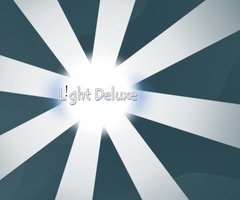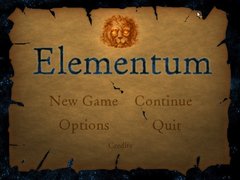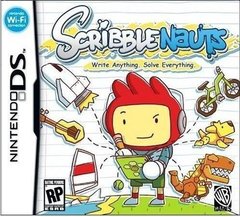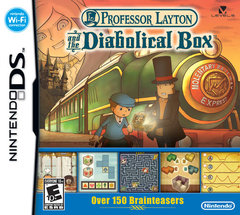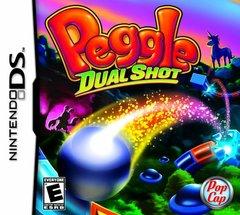puzzle
Picross 3D
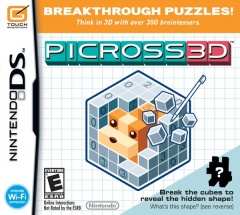 I can't name a lot of puzzle games I've honestly enjoyed. Tetris Attack, the Professor Layton series if those count, World of Goo? As you can tell I'm not a huge fan of the genre. I might play a puzzle game for a few rounds before I become bored, but Picross 3D was different, really different. I've already managed to beat over 200 levels and was becoming so obsessed with the game I was carrying my DS to work in case the opportunity came up over lunch.
I can't name a lot of puzzle games I've honestly enjoyed. Tetris Attack, the Professor Layton series if those count, World of Goo? As you can tell I'm not a huge fan of the genre. I might play a puzzle game for a few rounds before I become bored, but Picross 3D was different, really different. I've already managed to beat over 200 levels and was becoming so obsessed with the game I was carrying my DS to work in case the opportunity came up over lunch.
Picross 3D is not a typical puzzle game, it's slow moving and requires a lot of careful thought. There is little guessing involved and it does an excellent job of driving you on from puzzle to puzzle. As someone who had never played a Picross game before, I really had no idea what I was getting into until I read Nate's half hour review of the game. The game is cheap though so there's little investment for a chance of tons of hours of gaming. Plus it reminds me of my Kakuro obsession during my senior year of college.
Get ready for my shortest review ever!
Picross 3D
 Picross 3D is the latest brain-teaser game for the Nintendo DS. If you're not familiar with the concept of Picross,
it's a simple puzzle game: a grid of squares is presented, and numbers
next to the rows or columns indicate how many squares in that column or
row should be colored in. As squares are colored in, they clue the
player in on what other squares should be colored in. The end result is
a crude object, like a person or a clock. It's simple enough that it
could be done on graph paper, but Nintendo has made millions of dollars
collecting these puzzles and putting them in videogames, most recently Picross DS a few years ago.
Picross 3D is the latest brain-teaser game for the Nintendo DS. If you're not familiar with the concept of Picross,
it's a simple puzzle game: a grid of squares is presented, and numbers
next to the rows or columns indicate how many squares in that column or
row should be colored in. As squares are colored in, they clue the
player in on what other squares should be colored in. The end result is
a crude object, like a person or a clock. It's simple enough that it
could be done on graph paper, but Nintendo has made millions of dollars
collecting these puzzles and putting them in videogames, most recently Picross DS a few years ago.
Picross 3D takes the concept in three
dimensions, giving the player a large cube or rectangular prism made up
of blocks. Remove the right blocks and an object appears. The concept
is almost as simple in 3D as it is on graph paper, though it would be
nigh-impossible to do with physical objects. It's well-suited for
videogames, however, where virtual representations can easily be
created.
As someone who enjoys brain-teasers and puzzle games, I have a feeling I'll enjoy Picross
3D as long as I'm sufficiently challenged. But this is one of those
new-fangled "Casual games" that seem to be popping up everywhere
nowadays and trying to appeal to everybody, so it may be oversimplified
or very slow to start. Let's find out.
L!ght Deluxe
Simple yet complex? Possibly. Simply complex? Not quite right. I know it’s here somewhere and I think you get the point. L!ght Deluxe is a delightfully simple puzzle game from a new-to-me Indie Developer: Nemo Games. Looking at their website, it would appear that L!ght Deluxe is their first, or perhaps their only game. While the game definitely feels like an early effort, it shows promise and offers some interesting aspects to its gameplay.
L!ght deluxe is built on a basic concept that allows degrees of complexity to be added as you advance through the "levels". At its elemental level, you are trying to connect a line, uninterrupted, from its origin to its ultimate destination. Each puzzle takes place on a large grid, much like a Chess board. Early levels are smaller, perhaps grids that are 6 x 6 squares in size. However, as levels increase in complexity and difficulty, they get larger.
The line you are tasked with completing represents light and behaves as one would expect a beam of light (or laser to add a bit of intensity) to behave. In my opinion, it’s this foundational principle that allows the game to be successful much earlier than it would be otherwise. We all inherently understand that light bounces off reflective surfaces and changes colors as it passes or filters through other materials. The nature of light, and our assumed understanding of it, allows the developers to move more quickly with tutorials as we progress through the game and are introduced to the gradually increasing complexity of the puzzle designs.
Elementum
Elementum is an upcoming puzzle game being released by indie developer One Thing Studios. I played the demo recently and really enjoyed its mechanics and can see it being a decent hit for the developers. The concept is simple but there's really a ton of room for potential. I'm looking forward to its full release soon and hope the full game is as good as the demo.
By the way, the demo works perfectly in Wine on Linux, so hopefully there aren't any incompatibilities introduced with the full game.
If I had to describe Elementum, I would call it a mix of Peggle, Bejeweled, and air hockey. You're basically presented with a bunch of balls (or particles) you need to destroy. To remove them from the board, you need to shoot a ball from the outer edge into the mix and group at least three of the same color together. If the shot ball comes in contact with another ball, they switch places: the shot ball is now at rest and the stationary ball is ricocheted off. With a normal shot, one ball goes in and one ball goes out. The ball heading out must now be caught though by the device that shoots balls in. It may sound a bit confusing but it is really very simple, check out the screenshot.
Circle Challenge
Many of us grew up playing video games, some of us wanted to make video games, but only a few (very exhausted and worn out folks) ever actually develop a video game that's available to the masses. Apple has been changing all that over the last few years though with their iPhone and iPod Touch platforms: if you've got $100, a Mac, and the creativity, time, and know-how to develop your own game, you can do it. That's exactly what my friend Rory Johnson did last year, who released Circle Challenge in January 2009.
Call it an experiment in Objective C, an attempt at touchscreen controls, or simply the output one man created out of some inner desire to finally do something with his spare time, Circle Challenge was actually released to the world. It is, nonetheless, a video game. A video game in maybe the vaguest sense of the term, but at least it's not a Bejeweled clone or a fart soundboard.
Scribblenauts
The most talked about DS game at this year’s E3 wasn’t another installment in a popular and established franchise, but instead a strikingly original title from the creators of the Drawn to Life series, 5th Cell. In the same spirit as their million-seller, Scribblenauts relies heavily on the creativity of the player. Armed with tens of thousands of words, you must solve puzzles that range from moving a cow off the road to saving people from a horde of hungry zombies. If you can think it, you can do it.
Players control the rooster hat-wearing Maxwell, a kid that always has a smirk and curiously wear shorts with long sleeves. Maxwell is thrown into hundreds of levels with one simple goal: find and obtain an object called a starite. In order to do this, the player must summon objects by writing them via a mini-keyboard or by spelling them out (trust me, it’s easier to just use the keyboard). Objects will then appear in the level to help, or in some cases, hurt you. The game boats tens of thousands of objects, and 5th Cell has done a remarkable job including pretty much everything you can think of. Practical objects like bridges, ladders, and boxes are in the game, but it also has every kind of obscure animal, vehicle, or instrument you can think of. The game is also filled with a lot of bizarre and nerdy objects such as internet memes (lol wut is a personal favorite), Lovecraftian monsters, mythological creatures, giant robots and everything in between. Is a helibackpack a real thing? It doesn’t matter, it’s in the game and can be quite useful.
Professor Layton and the Diabolical Box
Professional puzzle-solver and tea lover Professor Hershel Layton and young Luke, his apprentice, are back to solving the ultimate mystery in Professor Layton and the Diabolical Box, the sequel to 2008's Curious Village. The game plays as a Myst-like point-and-click with brain-teasers thrown in every couple of minutes; and not the random, bumbling puzzles of Myst, but random, Mensa head-scratchers that will have you reaching for the nearest bottle of headache medicine. Diabolical Box is not just about solving puzzle after puzzle, however, there's a series of unsolved mysteries at hand along with a big cast of characters to help and hinder along the way. The game is chock full of wit and charm, and it is truly hard to put down.
Developers Level-5 seemingly got the formula right the first time, as not much has changed for the sequel (the third game was released last year in Japan and the fourth is almost out there too!). We still have the lovable British accents, the endless number of puzzles, and nearly the same enticing soundtrack. Let's get into my review of Professor Layton and the Diabolical Box.
Professor Layton and the Diabolical Box
A year and a half ago I had the distinct pleasure of playing Professor Layton and the Curious Village, a mystery game packed with puzzles set in, well, a very curious village. The game was a hit with me and many others, and while Level-5 has doled out three Layton games already and is a few months away from the fourth, they're just getting around to releasing the second outside of Japan. We wait patiently, however, and are rewarded with Professor Layton and the Diabolical Box. Nintendo is serving as the publisher in North America, Europe, and Australia, and has done a magnificent job releasing a potentially very niche puzzler to a wider audience. Honestly, the series is filled with such ultra-politeness and quirky British voice talent it's a wonder that something like this has taken off. Professor Layton is simply a perfect storm of great puzzles and marvelous atmosphere.
Level-5 is of course also the developer of Rogue Galaxy, an RPG I recently reviewed for the PlayStation 2. I'm becoming more and more impressed by their range of games they're developing and publishing, and other companies are too, including Square Enix which trusted them with Dragon Quest IX.
The release schedule of the Professor Layton series seems very similar to that of Phoenix Wright, with the West just starting to get the series after a few of them had already been released in Japan. In some ways, this is great because we know that there are a whole slew of games coming, but I just hope it doesn't start feeling stale like Ace Attorney did. Well, here's the first hour of Professor Layton and the Diabolical Box.
Scribblenauts
Scribblenauts is the much-hyped puzzle game from developers 5th Cell that garnered a lot of awards and attention after this year’s E3. 5th Cell are the creators of Drawn to Life, a game that managed to sell over a million copies and put them on the map. Scribblenauts is a game that promises thousands of items that interact with each other in realistic and unique ways, allowing gamers to come up with their own innovative ideas when it comes to solving a level. The first hour of this game will vary heavily for anyone playing the game, as it’s possible to spend hours just on the menu screen.
Editor's Note: Grant begged to review this game, and he gets his reward. About three months back I previewed the game, comparing it to 5th Cell's predecessor, Drawn to Life. While I was less than pleased with that game, Scribblenauts seemed to be on its way to fixing all of its (many) problems. Let's see if the first hour of Scribblenauts starts off in the right direction.
Peggle: Dual Shot
Peggle: Dual Shot is the Nintendo DS port of the popular puzzle-casual game, Peggle. It was released early this year and is a compilation of both Peggle and Peggle Nights. Peggle has appeared on a variety of platforms, but made it big when a themed demo of it was released with The Orange Box. The gameplay of Peggle is pretty simple, it's a bit like Pachinko, where you shoot/drop balls from the top of screen and watch them bounce off pegs (Peggles). Yeah, that's really about it, but if you know anything about the Japanese and their Pachinko, you know they can be addicted, and so will you if you pick up Peggle.
It's all so deceptively simple, but you'll be hooked. Each stage has a collection of both blue and orange peggles, the goal is to knock out all the orange pegs with 10 or less shots. While this remains constant throughout the game, each stage is set up differently, featuring new challenges, and there are also power-ups available to you. Plus the whole game is wrapped in this oddly endearing yet creepy package starring a bunch of furry animals. Well, here's my review of Peggle: Dual Shot.

